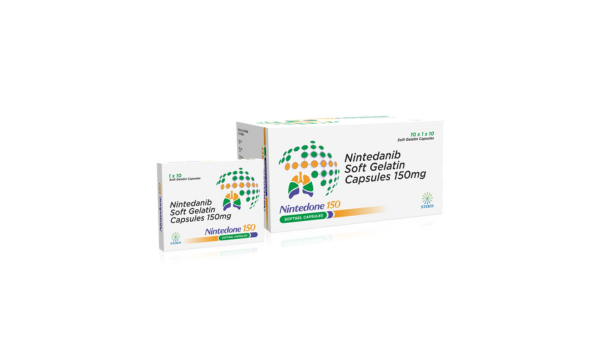Nintedanib (150mg) : NINTEDONE 150 .....
Jul 25, 2024
Introduction
Nintedanib (150mg), marketed as NINTEDONE 150, is a potent medication primarily used in the treatment of various interstitial lung diseases (ILDs), including idiopathic pulmonary fibrosis (IPF). This oral kinase inhibitor is known for its action against the progression of fibrotic diseases, helping to reduce lung function decline and improve the quality of life for those suffering from chronic lung conditions. As a targeted therapy, NINTEDONE 150 is instrumental in addressing diseases where conventional treatments have limited efficacy.
In this article, we will explore the pharmacodynamics, uses, dosage, potential side effects, mechanism of action, and more related to Nintedanib (150mg), as well as its clinical applications, particularly in IPF and other pulmonary conditions.
What is Nintedanib (150mg)?
Nintedanib 150mg, sold under the brand name NINTEDONE 150, is an oral antifibrotic medication that belongs to a class of drugs known as tyrosine kinase inhibitors. Nintedanib targets specific cellular pathways that contribute to fibrosis and tissue scarring, particularly in the lungs. It works by blocking the activity of several receptors involved in the fibrotic process, including vascular endothelial growth factor receptors (VEGFR), platelet-derived growth factor receptors (PDGFR), and fibroblast growth factor receptors (FGFR).
By inhibiting these pathways, Nintedanib (150mg) reduces the proliferation of fibroblasts (the cells responsible for the formation of scar tissue) and slows down the progression of diseases characterized by abnormal tissue scarring, such as idiopathic pulmonary fibrosis (IPF) and other related conditions like systemic sclerosis-associated ILD.
How Does Nintedanib (150mg) Work?
The mechanism of action of Nintedanib (150mg) is multi-faceted, targeting various growth factor receptors that play a crucial role in fibrosis and tissue remodeling. NINTEDONE 150 works by inhibiting the following key receptors and processes:
-
VEGFR (Vascular Endothelial Growth Factor Receptor): This receptor is involved in the formation of new blood vessels. In conditions like IPF, abnormal vessel formation contributes to disease progression. By inhibiting VEGFR, Nintedanib reduces the angiogenesis (formation of new blood vessels) that leads to worsening fibrosis.
-
PDGFR (Platelet-Derived Growth Factor Receptor): PDGF is a key mediator in the recruitment and activation of fibroblasts, which are essential for the development of fibrotic tissue. NINTEDONE 150 inhibits PDGFR signaling, preventing fibroblast proliferation and activation, which are critical for tissue scarring.
-
FGFR (Fibroblast Growth Factor Receptor): FGFR signaling is associated with the activation of fibroblasts and the deposition of extracellular matrix components. By blocking FGFR signaling, Nintedanib (150mg) reduces fibrotic tissue formation.
This targeted action helps to prevent the progression of pulmonary fibrosis and other fibrotic diseases by decreasing lung tissue scarring and reducing the overall burden of fibrosis.
Key Uses of Nintedanib (150mg)
Nintedanib 150mg is indicated in the treatment of several fibrotic diseases, most notably in the management of idiopathic pulmonary fibrosis (IPF). However, its application extends to other interstitial lung diseases and chronic conditions involving fibrosis. Some of the key uses of NINTEDONE 150 include:
-
Idiopathic Pulmonary Fibrosis (IPF):
-
IPF is a chronic, progressive lung disease characterized by the thickening and scarring of lung tissue. It leads to difficulty breathing, coughing, and reduced lung function. NINTEDONE 150 has been shown to slow down the progression of IPF, improving lung function and quality of life in patients.
-
-
Systemic Sclerosis-Associated Interstitial Lung Disease:
-
This condition occurs in individuals with systemic sclerosis (scleroderma) and leads to progressive scarring of lung tissue. Nintedanib (150mg) has been demonstrated to reduce the rate of lung function decline in patients with this form of ILD.
-
-
Other Interstitial Lung Diseases (ILDs):
-
NINTEDONE 150 may also be used to manage other forms of ILD, especially those that involve fibrosis as a key pathological process. It helps manage symptoms and slow disease progression.
-
Dosage and Administration of Nintedanib (150mg)
The recommended dosage of Nintedanib (150mg) is typically 150 mg taken twice daily. It is important for patients to follow the prescribed dosing regimen to achieve the maximum therapeutic benefit. Here are some general guidelines for NINTEDONE 150 administration:
-
Oral Administration: The tablet should be taken orally, with or without food. It is recommended to take Nintedanib 150mg with meals to reduce the risk of gastrointestinal side effects like nausea and diarrhea.
-
Missed Dose: If a dose is missed, it should be taken as soon as possible, unless it is close to the time for the next dose. In that case, the missed dose should be skipped, and the regular dosing schedule should be followed.
-
Dose Adjustment: In certain cases, such as the presence of liver impairment or severe gastrointestinal side effects, the dose may need to be adjusted. Always consult a healthcare provider before making any changes to the dosing regimen.
Potential Side Effects of Nintedanib (150mg)
While Nintedanib (150mg) is effective in managing fibrosis, it may cause several side effects, which range from mild to severe. The most commonly reported side effects of NINTEDONE 150 include:
-
Gastrointestinal Issues:
-
Diarrhea: This is the most common side effect and can occur in up to 60% of patients. It can be mild to moderate and may require treatment with anti-diarrheal medications or dose adjustments.
-
Nausea and Vomiting: These are also frequently reported and can be managed by taking the medication with food or adjusting the dose.
-
-
Liver Toxicity:
-
Nintedanib (150mg) can cause liver enzyme elevations, which may indicate liver dysfunction. Regular monitoring of liver function through blood tests is recommended to detect early signs of liver toxicity.
-
-
Decreased Appetite and Weight Loss:
-
Some patients may experience a reduced appetite, which can lead to weight loss. This should be monitored, especially in patients who are already at risk of malnutrition.
-
-
Fatigue:
-
Many patients on NINTEDONE 150 report feeling fatigued or weak, which can affect their daily activities.
-
-
High Blood Pressure:
-
Hypertension is another side effect that may occur during treatment. Blood pressure should be monitored regularly.
-
Warnings and Precautions
Before starting treatment with Nintedanib (150mg), patients should inform their healthcare provider about any pre-existing conditions or medications they are taking, particularly in the following areas:
-
Liver Disease:
-
Nintedanib 150mg is metabolized by the liver, so patients with liver disease may need dose adjustments or close monitoring during treatment.
-
-
Gastrointestinal Conditions:
-
Patients with a history of gastrointestinal issues, such as ulcers or inflammatory bowel disease, may need to take extra precautions when using NINTEDONE 150, as it can exacerbate these conditions.
-
-
Pregnancy and Breastfeeding:
-
Nintedanib (150mg) is classified as a Category D drug for pregnancy, meaning it may harm an unborn child. It should only be used during pregnancy if the potential benefits outweigh the risks. It is not recommended for use during breastfeeding.
-
-
Bleeding Disorders:
-
Due to its effects on blood vessel formation, Nintedanib may increase the risk of bleeding. Patients with bleeding disorders should be monitored closely.
-
Conclusion
Nintedanib (150mg), branded as NINTEDONE 150, is a groundbreaking medication in the management of fibrotic lung diseases like idiopathic pulmonary fibrosis (IPF) and other forms of interstitial lung diseases (ILDs). Its ability to target key growth factor receptors involved in the fibrotic process makes it an essential part of treatment regimens for patients facing progressive lung damage due to fibrosis.
While NINTEDONE 150 offers significant benefits in slowing disease progression and improving quality of life, it is important to monitor for side effects and adjust dosages as needed under the supervision of a healthcare provider. As research continues, the full potential of Nintedanib (150mg) in treating other fibrotic conditions may expand, further solidifying its place in the therapeutic landscape for fibrosis management.
About The Author
Steris Healthcare Pvt Ltd, known as Sterispharma, was founded in February 2018 by a team of experienced professionals in the pharmaceutical industry. Headquartered in Navi Mumbai, the company holds certifications from WHO, GMP, and ISO, reflecting its dedication to maintaining high standards of quality and safety. Sterispharma’s mission is to provide affordable, high-quality medications across India, strictly adhering to WHO guidelines. With the convenience of an online pharmacy, customers can easily order medicines with home delivery options.
For further information
Email: info@sterispharma.com / contact@sterispharma.com
Call/WhatsApp: 8209542042 , 8824175417
BUY NOW
Recent Post

Purifying Charcoal Face Wash for Oily and Acne-Prone Skin

Foaming Face Wash with Hydrating Power for Dry Skin Relief
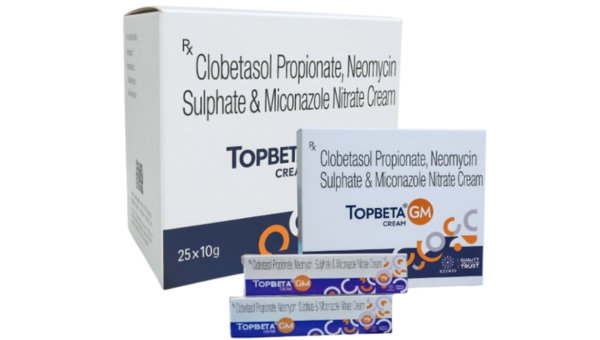
TOP BETA GM: Clobetasol Propionate, Neomycin Sulphate & Miconazole Nitrate Cream.
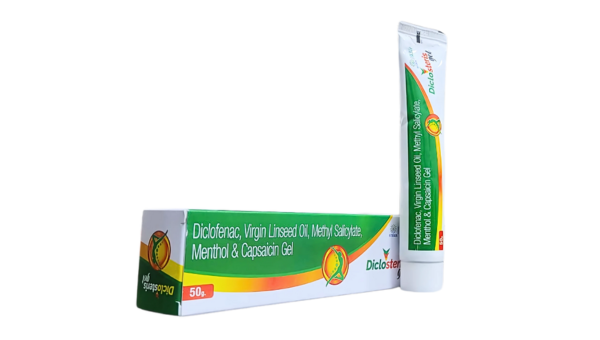
Multi-Action Pain Relief Gel – Diclofenac, Linseed Oil, Menthol, Capsaicin & Methyl Salicylate
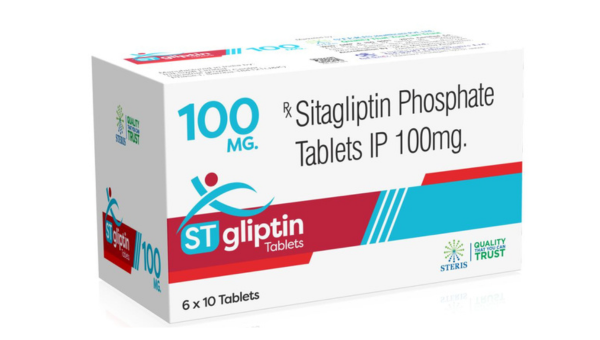
Best Sitagliptin 100 mg Brands In India | Steris Healthcare Pvt Ltd.
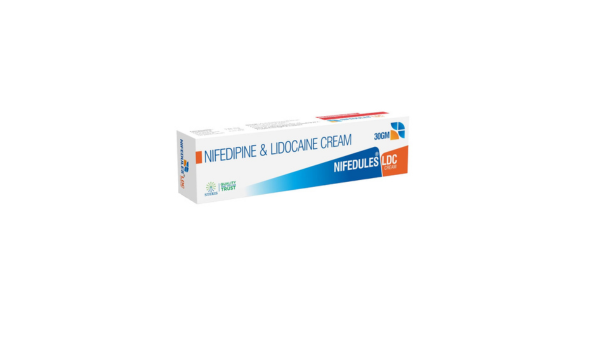
Nifedipine & Lidocaine Cream – Dual Relief for Anal Fissures & Hemorrhoids
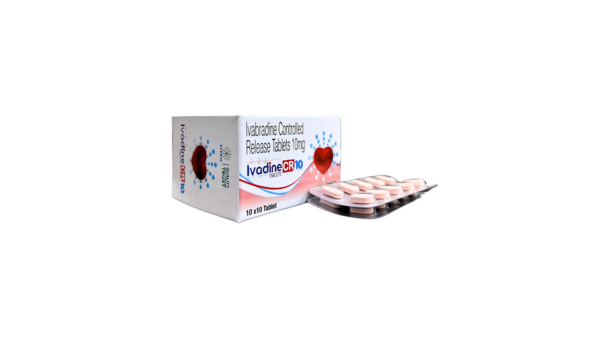
Ivabradine Controlled Release 10 mg Tablet – Heart Rate Management Simplified
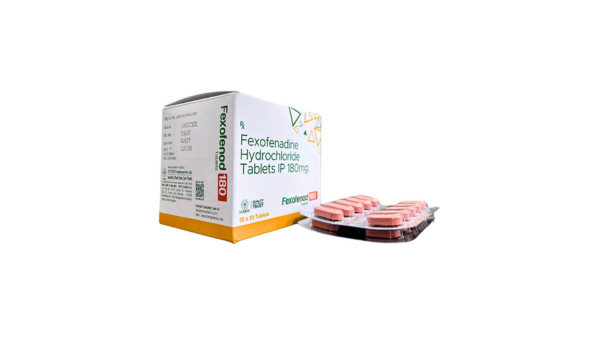
Fexofenadine Hydrochloride 180 mg Tablet – Fast Relief from Allergies
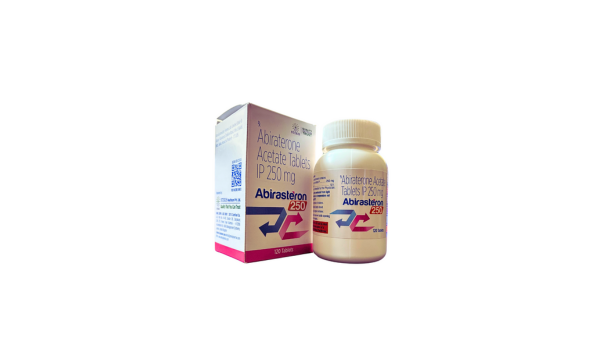
ABIRASTERON 250 – Abiraterone Acetate IP 250 mg Tablet
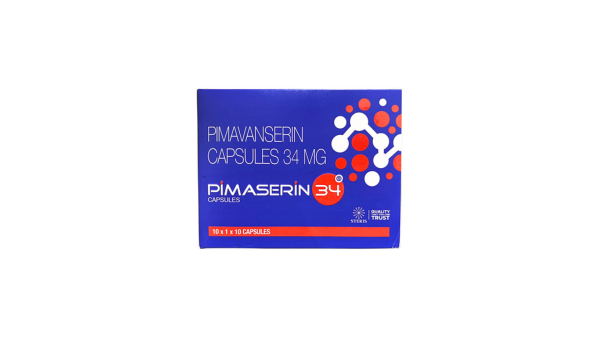
PIMASERIN 34 – Pimavanserin 34 mg Tablet

